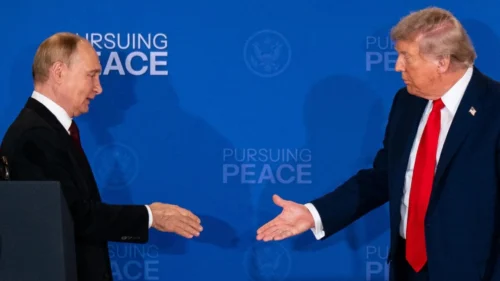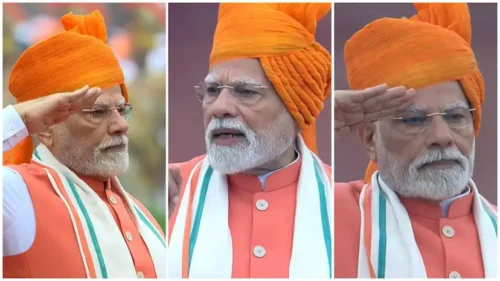Rama Krishna Sangem
Much hyped and much awaited Trump-Putin meeting in Alaska, US ended without any solution to the 3 year old Russia Ukraine war. India expected any ceasefire of the war would bring us some solace in 50 per cent tariffs imposed by Trump. But nothing of that sort happened, thus pushing India into a 50 per cent US tariffs phase from August 27. As far as we are concerned, this is a disappointment, but for the world media, including BBC etc, there are some positive points in the meting.
The high-stakes meeting between US President Donald Trump and his Russian counterpart President Vladimir Putin was billed as a vital step towards peace in the Ukraine war. But with no ceasefire and an invitation to Moscow, the almost three-hour meeting between the two leaders has yielded more questions than answers.
But, BBC, a leading Western world’s voice saw some takeaways out of the meeting, meaning it is not completely a wasteful exercise. BBC predicted the next summit of Trump and Putin would be held in Moscow.
It was a remarkable moment for Putin – a leader who most Western nations have shunned since Moscow launched its full-scale invasion of Ukraine in 2022. His international travel has since been largely limited to nations friendly to the Russian Federation, such as North Korea and Belarus.
The fact that the Alaska summit happened at all was a victory for Putin. But this welcome would have surpassed the Kremlin’s wildest dreams. In a short six months Putin went from being a pariah in the eyes of the West to being welcomed on US soil like a partner and friend.
To cap it off, in an apparently unscripted moment, Putin decided to accept a lift to the airbase in Trump’s armoured limousine instead of driving in his own Moscow-plated presidential state car. As the vehicle pulled away, the cameras zoomed in on Putin, sitting in the backseat and laughing.
World media expected a press conference
The world’s media gathered in the room with Putin and Trump had been led to expect a press conference; instead, the two leaders gave statements and took no questions from reporters. Unusually, Putin was the first to speak. He praised the “constructive atmosphere of mutual respect” of the “neighbourly” talks, and then launching into a condensed history of Alaska’s past as a Russian territory.
As Putin spoke, Trump stood in silence. It was several minutes before the Russian president mentioned what he called the “situation in Ukraine” – ostensibly the catalyst for the summit. When he did, it was to state that although an unspecified “agreement” had been reached, the “root causes” of the conflict had to be eliminated before peace could be achieved.
The phrase will have set off alarm bells in Kyiv and beyond. Since the start of the war it has become shorthand for a series of intractable and maximalist demands that Putin says stand in the way of a ceasefire.
Now a lot of follow up meetings will be held – with Trump talking to his NATO allies and Putin talking to his friends like China – on what they discussed at Alaska. Zelenskyy is likely to call on Trump for further the peace agenda. It is guessed that Trump and Putin would meet within a month or two to take forward their negotiations.


